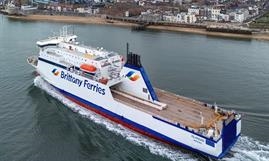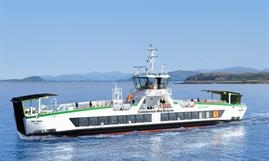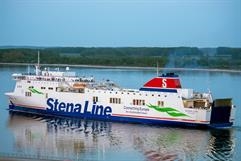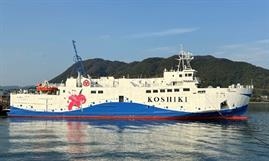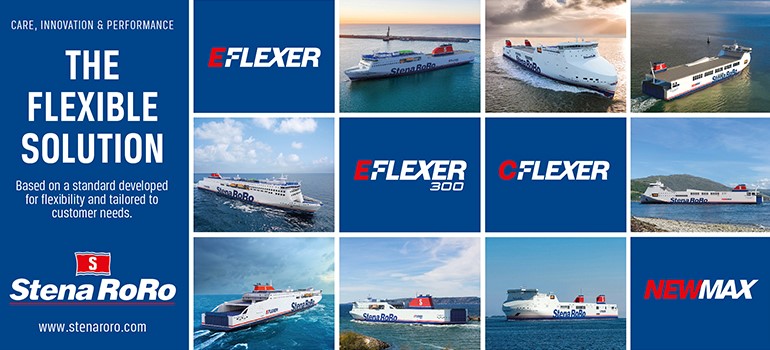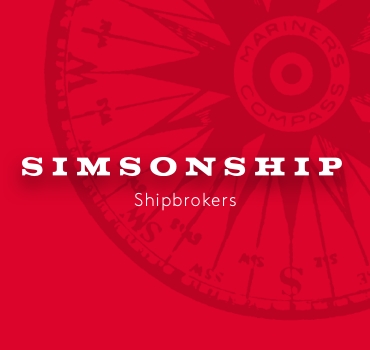
© Scandlines
Scandlines orders zero-emission ferry for the Puttgarden-Rødby route
FerryScandlines has entered into a contract with Cemre Shipyard, Turkey to build an emission-free freight ferry for the Puttgarden-Rødby route. The ferry will be inserted in 2024 and will launch the next generation of ferries on the route.
The vessel will have a capacity of 66 freight units, which increases the current capacity by 23 percent.
Thanks to the hybrid diesel/battery electric propulsion, the vessel will have the capability to operate in two different modes, as fully electrical relying on plug-in battery power at 10 knots with a crossing time of one hour, or plug-in hybrid mode at 16 knots and a crossing time of 45 minutes. Thus, the ferry can also be used as backup ferry if one the four double-ended ferries that are currently operating the Puttgarden-Rødby route, is in the yard. The design is also prepared for future upgrades to methanol ICE solution.
As it is known from the ferries operating the Rostock-Gedser route, it will be possible to transport lorries on both the upper and lower decks. Therefore, berth 3 in Rødby and berth 1 in Puttgarden must be rebuilt to also load lorries on the upper deck. At the same time, a new lorry storage area will be established in the terminal of Puttgarden.
Scandlines thus replaces the two oldest ships in the fleet, HOLGER DANSKE and KRONPRINS FREDERIK.
"With the added capacity, we will be able to meet the increasing need from freight customers. In 2021, the number of freight units has already increased by 12 percent," says Scandlines' CEO Carsten Nørland.
With a zero-emission ferry, Scandlines is taking a big step on the green journey. The ferry will initially exclusively charge in Rødby. Already in 2019, Scandlines invested in a 50 kV / 25 MW power cable to Færgevej in Rødbyhavn. This cable will now be extended to the ferry berths, where a transformer and charging station will be installed. In the longer run, the plan is to also be able to charge in Puttgarden when a good solution has been found for the purchase of green energy.
The Lloyd's Register classed vessel will be fitted with the largest battery pack to date with approximately 10 MWh capacity. It will also have Safe Return to Port compliance.
The modular construction of the vessel makes it possible to later adjust the vessel in order to also carry cars. Scandlines achieves maximum flexibility, both in terms of future technology and needs.
"Scandlines has for several years focused on the entire area of sustainability. The hybrid system was a quantum leap in green ferry operations. Scandlines not only operates the world's largest fleet of hybrid ferries, the system is also being copied worldwide and has been a huge success. Now we are ready to take the next big step and insert the first zero emission ferry. The next generation of ferries is ready to take over on the Puttgarden-Rødby route," says Chairman of Scandlines' Supervisory Board Vagn Sørensen.
"NABU welcomes this further major step by the shipping company Scandlines on the way to emission-free shipping. Scandlines not only significantly lowers its own emissions and proves that even larger ships can sail completely without greenhouse gas and air pollutant emissions already today, but also paves the way for climate-neutral shipping with its pioneering role. We are thankful for this courageous step," says Sönke Diesener shipping expert of NABU, the German Nature And Biodiversity Conservation Union.
For the development of the newbuilding project, Cemre Shipyard has for the first time cooperated with LMG Marin AS as a design partner.
Specifications:
Length: 147.4 m
Breadth: 25.4 m
Design draft: 5.30 m
Freight capacity: 66 freight units (abt. 1,200 lanemetres)
Max. number of passengers: 140
Service speed: 16 knots
Battery capacity:10 MWh

© Scandlines
Nov 09 2021
Most read
A-Ships Management acquires WOLIN, due to depart for Greece as the GOLDEN CARRIER this week
Mar 18 2025


